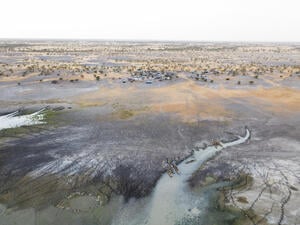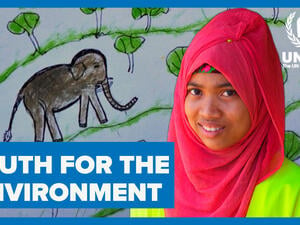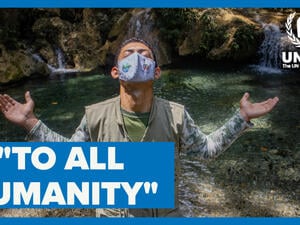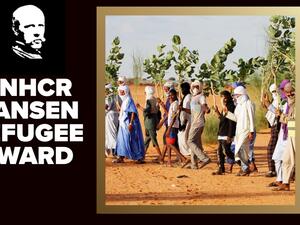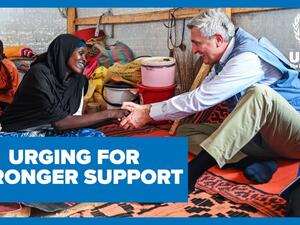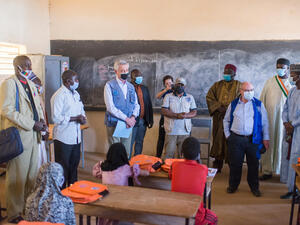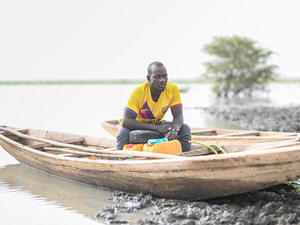World Environment Day 2002
World Environment Day 2002
Tomorrow, June 5, is World Environment Day. Along with the UN Environment Programme, UNHCR will mark the day by raising awareness about environmental concerns that are closely linked to refugee operations. We are urging states, donors and other organisations to work with us to address environmental issues early on in refugee operations. This can help prevent degradation from occurring in the first place and repair some of the damage caused by refugees and refugee operations.
The unexpected arrival of large numbers of refugees, as well lengthy stays in asylum countries, can have a significant environmental impact. Trees are cut for housing, cooking, heating and to clear land for crops; water is collected for drinking, cooking, and washing; and substantial amounts of waste are produced. If not addressed in time, such activities can quickly lead to deforestation, soil erosion or competition with local, host communities for scarce natural resources. This can result in conflicts and, in extreme situations, can even influence the decision of a country to accept refugees.
UNHCR tries to minimise negative impacts through environmental education, awareness-raising, promoting fuel-efficient cooking devices, improved agricultural practices, and reforestation/forest management. In Tanzania, for example, which currently hosts some 660,000 refugees, UNHCR's reforestation programme in Kibondo district is keeping up with tree usage in the area and is even seeing a modest surplus of new trees.
Introducing improved agricultural activities to settlements in southern Uganda is just one step being taken to help local people and refugees improve crop yields, maintain soil fertility and reduce the need for further clearance of land for cultivation. In Sudan, UNHCR is working with local communities to repair environmental damage in two areas where refugee camps have now closed. This includes planting trees and developing environmentally friendly agricultural practices.
In more than 20 countries in Africa, Asia and Central Europe, UNHCR sponsors environmental education programmes that teach refugee children and some children from the host community about caring for the environment through formal school lessons as well as out-of-school activities such as ecoclubs, theatre, poetry and games.
A number of UNHCR field operations are planning special events for World Environment Day, including demonstrations of sound environmental practices, awareness-raising campaigns, camp clean-ups and sporting events. As in past years, many of these activities are undertaken at the wish of the refugees, who themselves want to help make a difference by improving their living conditions and contributing in some small way to improved environmental management in and around the many camps and settlements world-wide.

